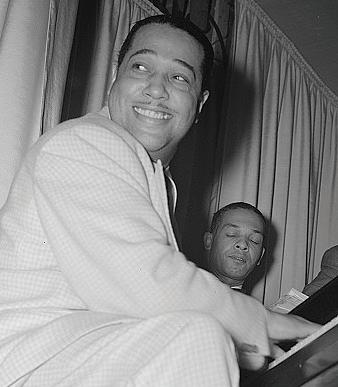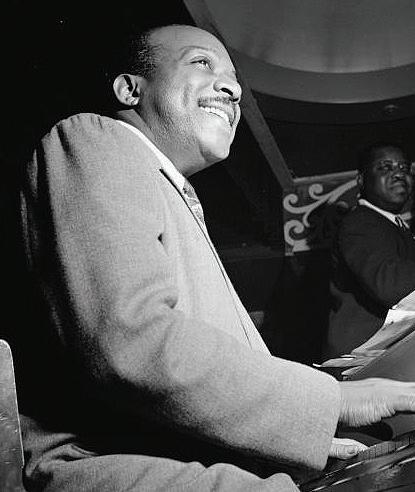
3 minute read
Remarkable Freemasons: Music Makers
DUKE ELLINGTON, 1943. GORDON PARKS, FARM SECURITY ADMINISTRATION - OFFICE OF WAR INFORMATION PHOTOGRAPH COLLECTION, LIBRARY OF CONGRESS.
by Stacy Fraser, Assistant Curator, Scottish Rite Masonic Museum & Library
Freemasonry and music have a long association, and some of America’s most famous musicians were members of the Fraternity. Learn more below about Duke Ellington and Count Basie, two remarkable music-making Masons.
Edward Kennedy “Duke” Ellington (1899-1974)

COUNT BASIE, CIRCA 1947. WILLIAM P. GOTTLIEB/IRA AND LEONORE S. GERSHWIN FUND COLLECTION, MUSIC DIVISION, LIBRARY OF CONGRESS.
William “Count” Basie (1904-1984)
Pianist Edward Kennedy “Duke” Ellington (1899-1974) was born in Washington, D.C. He was the grandson of formerly enslaved people on his mother's side. Ellington’s parents played the piano, and his mother urged him to take lessons. Ellington earned the nickname “Duke” in a nod to his sharp dressing and elegant habits.
When a friend moved to New York, Ellington tagged along to investigate the emerging jazz scene. By 1927, Ellington led the house band at the famous Cotton Club. In 1932, Ellington joined Social Lodge No. 1, Prince Hall Affiliation, in Washington, DC.
In addition to playing piano and directing his orchestras, Ellington composed over three thousand songs. Nina Simone, Billie Holiday, Ella Fitzgerald, Thelonius Monk, and others have recorded his compositions. His most well-known works include “Solitude,” “Mood Indigo,” and “It Don’t Mean a Thing (If It Ain't Got That Swing).” Among many awards, Ellington received fourteen Grammys, the Presidential Medal of Freedom, and a Pulitzer Prize for his lifetime contributions to music and culture. A native of Red Bank, New Jersey, William “Count” Basie (1904-1984) was introduced to the piano and drums by taking lessons his mother funded. In his teen years, Basie learned to improvise piano accompaniment at his local movie theater. He moved to New York City around 1924 and became familiar with the “stride” piano style from ragtime musician James P. Johnson and organ playing from Fats Waller.
In the late 1920s, Basie’s touring vaudeville group disbanded in Kansas City, and he was left without a way home. He started playing locally, and by 1935, he led Count Basie and His Barons of Rhythm. A local radio announcer gave Basie his nickname “Count” to indicate his status as emerging jazz “royalty.” At the end of 1936, Basie moved to Chicago, where he joined Wisdom Lodge No. 102, Prince Hall Affiliation. In the early 1950s, Basie and his band played such musical luminaries as Ella Fitzgerald, Sammy Davis Jr., and Sarah Vaughan.
Count Basie won nine Grammys, including in 1958, the first awarded to an African-American. Nationally recognized, Basie performed at the inauguration of President John F. Kennedy. President Ronald Reagan posthumously awarded Basie the Presidential Medal of Freedom in 1985, citing his “brilliant and innovative work in the field of jazz.”










